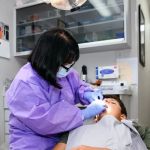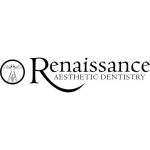Essential Tips for Keeping Your Gums Healthy as You Age
As we age, our health needs change, and oral health is no exception. Maintaining healthy gums is just as important as caring for our teeth, especially as we grow older. Gum disease is a common concern among seniors, but the good news is, it’s largely preventable with the right care. In this article, I’ll share my personal tips for keeping your gums in top shape and explain why it’s so crucial to prioritize gum health in our senior years.
Why Gum Health is Crucial for Seniors
When I was younger, I didn’t think much about my gums. I brushed my teeth and went on with my day. But as I entered my senior years, I started noticing some changes in my oral health that I could no longer ignore. Gums can recede, become inflamed, and even bleed if not properly cared for. This isn’t just about aesthetics—your gum health plays a significant role in your overall well-being. Poor gum health can lead to tooth loss, infections, and even contribute to systemic diseases like heart disease or diabetes. It’s clear that keeping my gums healthy is as important as caring for my teeth, especially now that I’m a senior.
1. Brush Twice a Day, but Do It Right
One of the first things I learned in my journey to healthy gums was the importance of brushing correctly. Brushing twice a day is non-negotiable, but it’s not just about doing it regularly—it’s about doing it right. I use a soft-bristled toothbrush to avoid damaging my gums, and I always make sure to brush in gentle, circular motions. Harsh scrubbing can lead to gum recession, which can expose the roots of the teeth. Also, don’t forget to brush your tongue! Bacteria can accumulate there, leading to bad breath and gum irritation.
2. Use Fluoride Toothpaste and Consider an Antiseptic Mouthwash
Incorporating fluoride toothpaste into my daily routine has been a game-changer for my gum health. Fluoride helps strengthen both my teeth and gums, providing additional protection against cavities and gum disease. Additionally, I’ve started using an antiseptic mouthwash that helps kill the bacteria responsible for gum disease. It's been incredibly effective in maintaining fresh breath and preventing plaque buildup, which is one of the main culprits behind gum problems.
3. Floss Daily—Yes, Every Day
Flossing was never my favorite activity, but I can’t stress enough how important it is to remove plaque and food particles between my teeth. As we age, our gums naturally recede, which means there’s more space for debris to get trapped. Regular flossing helps remove this buildup and prevents the development of harmful bacteria that can lead to gingivitis or worse. I use waxed floss for better comfort and ease of use, and it really makes a difference in keeping my gums healthy.
4. Regular Dental Check-ups Are Essential
When I was younger, I only saw the dentist when I had a problem. But as I got older, I realized that regular check-ups are essential for detecting early signs of gum disease and other oral health issues. Visiting my dentist at least twice a year allows for professional cleanings, which help remove plaque that even the best brushing and flossing can’t reach. Additionally, my dentist can identify issues like gum recession or early signs of infection before they become more serious problems.
5. Maintain a Healthy Diet for Your Gums
It’s not just about brushing and flossing—what I eat plays a significant role in the health of my gums. Eating a diet rich in fruits, vegetables, and whole grains provides essential vitamins and minerals that support healthy gums. For example, vitamin C is critical for gum tissue health, and I make sure to include foods like citrus fruits, bell peppers, and broccoli in my meals. Avoiding sugary snacks also helps, as sugar feeds the bacteria that contribute to plaque and gum disease.
6. Quit Smoking and Limit Alcohol Consumption
If you’re a smoker, this is a wake-up call. Smoking is one of the leading causes of gum disease, and it also makes it harder for your gums to heal after damage. I made the decision to quit smoking years ago, and it has done wonders for my gum health. Additionally, I keep alcohol consumption in check, as excessive drinking can dry out the mouth and reduce saliva production. Saliva is essential for washing away food particles and bacteria, so I make sure to stay hydrated and moderate my alcohol intake.
7. Be Aware of Medications That Affect Gum Health
As seniors, we often take multiple medications, some of which can affect our gum health. Certain medications can cause dry mouth, making it harder for the mouth to naturally clean itself. If you’re experiencing dry mouth, I recommend discussing it with your healthcare provider to find solutions. In some cases, drinking more water, using saliva substitutes, or adjusting medications can help mitigate the problem and keep your gums healthy.
8. Watch for Warning Signs of Gum Disease
Over the years, I’ve become more aware of the signs that something might be wrong with my gums. If my gums bleed when I brush or floss, it’s a red flag that I need to pay more attention to my oral hygiene. Swollen, tender, or receding gums are other signs that something might be amiss. If you notice any of these symptoms, it’s important to visit your dentist for a check-up as soon as possible to prevent the condition from progressing.
9. Protect Your Gums from Physical Injury
As we get older, our gums can become more sensitive and prone to injury. I’ve learned to be more careful when eating foods that could potentially harm my gums, such as hard candies or chips. Using a mouthguard while engaging in physical activities or sports can also help prevent injury to the gums and teeth. Taking these precautions has made a significant difference in maintaining the integrity of my gums as I age.
10. Stay Consistent with Your Oral Care Routine
Above all, I’ve found that consistency is key when it comes to maintaining healthy gums. It’s easy to skip a day here and there, but I’ve learned that every small effort adds up. By sticking to a regular routine of brushing, flossing, and seeing my dentist, I’ve been able to maintain healthy gums and avoid serious dental issues as I grow older.
Taking care of your gums in your senior years is vital for maintaining overall health. With the right habits, you can enjoy a lifetime of healthy teeth and gums, and avoid the complications that come with gum disease. Whether it’s through daily brushing, regular dental visits, or making healthy lifestyle choices, there’s always something we can do to keep our gums in great shape.







 Affiliated Dental Specialists4.0 (48 review)
Affiliated Dental Specialists4.0 (48 review) Corrie J Crowe DDS4.0 (149 review)
Corrie J Crowe DDS4.0 (149 review) Jennifer Cha, DMD, MS5.0 (5 review)
Jennifer Cha, DMD, MS5.0 (5 review) Renaissance Aesthetic Dentistry4.0 (511 review)
Renaissance Aesthetic Dentistry4.0 (511 review) Twin Oaks Dental4.0 (176 review)
Twin Oaks Dental4.0 (176 review) Riccobene Associates Family Dentistry4.0 (523 review)
Riccobene Associates Family Dentistry4.0 (523 review) The Importance of Oral Health Education During Pregnancy for a Healthy Pregnancy
The Importance of Oral Health Education During Pregnancy for a Healthy Pregnancy Best Tips for Brushing Your Teeth Properly for Healthy Gums: Essential Techniques for Oral Health
Best Tips for Brushing Your Teeth Properly for Healthy Gums: Essential Techniques for Oral Health Why Skipping Dental Checkups Can Lead to Bigger Oral Health Problems
Why Skipping Dental Checkups Can Lead to Bigger Oral Health Problems Advantages of Porcelain Dental Restorations
Advantages of Porcelain Dental Restorations How Can Diabetes Cause Tooth and Gum Problems? Preventing and Managing Oral Health Issues
How Can Diabetes Cause Tooth and Gum Problems? Preventing and Managing Oral Health Issues Healthy Habits for Promoting Good Oral Health and Hygiene: Tips for a Healthy Smile
Healthy Habits for Promoting Good Oral Health and Hygiene: Tips for a Healthy Smile